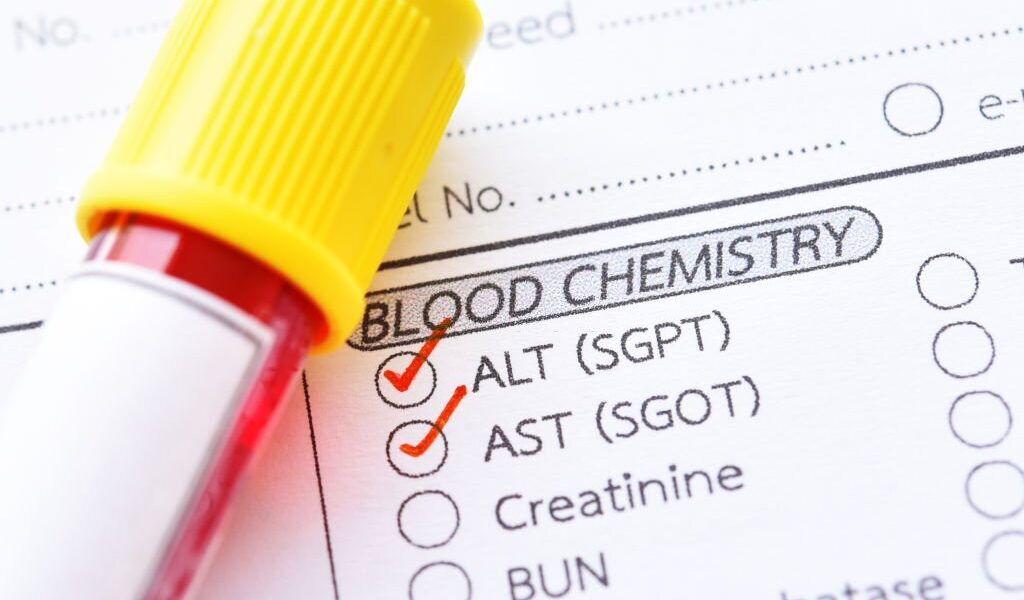What causes high SGPT and SGOT levels?
Your liver is a key organ that performs numerous vital activities in your body. Two essential enzymes, SGOT (Serum Glutamic-Oxaloacetic Transaminase) and SGPT (Serum Glutamic-Pyruvic Transaminase), are used to evaluate health. Increased SGOT and SGPT values may be a sign of underlying liver problems. We will examine the reasons behind elevated SGOT and SGPT indicators in this thorough tutorial, providing insight into liver health and the several elements that lead to these elevations.
Understanding SGOT and SGPT
It’s important to comprehend the importance of these enzymes and what they are before we investigate the causes of elevated SGOT and SGPT markers.
SGOT, also referred to as AST (aspartate aminotransferase), is an enzyme present in the kidneys, brain, liver, heart, and red blood cells. It is essential for the transformation of alpha-ketoglutarate and aspartate into glutamate and oxaloacetate. SGOT is mostly found in the liver and heart in relation to liver health.
SGPT, on the other hand, is more specific to the liver. Alpha-ketoglutarate and alanine are converted by SGPT, sometimes referred to as ALT (Alanine Aminotransferase), producing pyruvate and glutamate. Being predominantly present in the liver, it is a more liver-specific marker than SGOT.
These enzymes are normally present in your bloodstream, but their levels are typically low. Elevated SGOT and SGPT levels can signify various liver-related issues.
Common Causes of Increased SGOT and SGPT Levels
Now, let’s explore the various factors that can cause an increase in SGOT and SGPT levels and the role of liver function tests in diagnosing liver health.
2.1 Liver Diseases and Infections
Elevated SGOT and SGPT levels are significantly influenced by liver disorders and infections. They may consist of:
a. Hepatitis: Hepatitis A, B, C, D, and E are among the viruses that cause viral hepatitis, which can cause inflammation of the liver. Because of this inflammation, there is an increased release of SGOT and SGPT into the bloodstream.
b. Alcoholic Liver Disease: High levels of SGOT and SGPT are a sign of liver cell damage caused by prolonged, excessive alcohol consumption. When determining if alcohol has damaged the liver, liver function tests such as SGOT and SGPT measures are frequently performed as a preliminary step.
c. Autoimmune Hepatitis: Increased SGOT and SGPT values indicate inflammation and liver damage caused by the immune system attacking the liver in autoimmune hepatitis.
2.2 Medications and Toxins
Certain medications and exposure to toxins can also contribute to elevated SGOT and SGPT levels. These include:
a. Medications: Antibiotics, statins, acetaminophen (paracetamol), and nonsteroidal anti-inflammatory medicines (NSAIDs) are a few pharmaceuticals that can alter liver function and raise enzyme levels. Patients using drugs that may harm their liver should have regular liver function tests.
b. Toxins and Chemicals: Exposure to some chemicals and pollutants, such as industrial solvents, can cause damage to liver cells, which can lead to elevated levels of SGOT and SGPT. Tests for liver function aid in determining whether these poisons are present.
2.3 Metabolic Causes
Metabolic factors can influence liver enzyme levels as well. These include:
a. Obesity: Obesity and non-alcoholic fatty liver disease (NAFLD), a condition characterized by hepatic fat accumulation, are strongly related. NAFLD may cause elevations in both SGOT and SGPT. Liver function tests are widely used to detect and monitor NAFLD.
b. Metabolic Syndrome: This group of disorders is linked to abnormalities in the liver, such as increased liver enzymes, and raises the risk of heart disease and type 2 diabetes. Tests for liver function are useful in determining how the metabolic syndrome affects the liver.
c. Diabetes: Both type 1 and type 2 diabetes can affect liver function and lead to elevated SGOT and SGPT levels. Liver function tests are part of the diagnostic process for diabetes-related liver issues.
d. Genetic and Inherited Conditions: Certain people may be affected by hereditary or genetic disorders that affect their liver enzyme levels. Elevated SGOT and SGPT are symptoms of some conditions such as Wilson’s disease and hereditary hemochromatosis, which are commonly diagnosed with specific liver function tests.
2.4 Other Potential Factors
Other factors that can contribute to increased SGOT and SGPT levels include:
a. Extreme Physical Activity: Intense exercise or physical activity can temporarily affect liver enzymes. This increase is usually short-lived and not a cause for concern, but liver function tests may be used to confirm this.
b. Dietary Factors: A high-fat diet or excessive consumption of certain foods can influence liver health and result in elevated SGOT and SGPT levels. Monitoring liver function through tests can help identify dietary influences.
c. Stress and Emotional Well-being: Stress and emotional factors can also impact liver health. Chronic stress can lead to various health issues, including liver dysfunction, which may be detected through liver function tests.
2.5 Relation to Other Health Conditions
Problems with the liver are not the only causes of elevated SGOT and SGPT levels. They may also be connected to a number of other medical disorders, including:
a. Cardiovascular Conditions: Heart disease and other circulatory disorders have been related to elevated liver enzyme levels. Liver function tests are useful in discovering connections of this kind, however, the precise nature of the interaction is still being investigated.
b. Certain Cancers: Elevated SGOT and SGPT levels can be a symptom of certain malignancies, especially those that have spread to the liver. Tests for liver function are crucial for both the detection and tracking of cancer.
c. Thyroid Disorders: Thyroid disorders, such as hypothyroidism, can influence liver function and lead to elevated enzyme levels. When evaluating thyroid-related liver issues, liver function tests are invaluable.
Diagnosis, Treatment, and Prevention
When faced with elevated SGOT and SGPT levels, it’s essential to determine the underlying cause and take appropriate action. Diagnosis often involves a combination of liver function tests and other related tests.
3.1 Diagnostic Procedures
To diagnose the underlying cause of elevated SGOT and SGPT, healthcare professionals may use several diagnostic procedures, including:
a. Liver Function Tests: Liver function tests, including SGOT and SGPT measurements, provide a baseline for liver health and are often the first step in diagnosing liver issues.
b. Ultrasounds and Imaging: Imaging studies like ultrasounds, CT scans, or MRI scans can help visualize the liver and identify structural abnormalities, which are often performed alongside liver function tests.
c. Liver Biopsies: A liver biopsy may be necessary in specific circumstances in order to collect a tissue sample for in-depth analysis. When imaging examinations and liver function tests show abnormalities, biopsies are frequently performed.
3.3 Preventive Measures
Prevention is always better than cure. To maintain liver health and prevent abnormal SGOT and SGPT levels:
a. Vaccination: The chance of contracting viral hepatitis can be considerably decreased by receiving a hepatitis vaccination. Regular testing for liver function can assist in guaranteeing that a vaccine is effective.
b. Medication Usage: To prevent negative effects on the liver, take medications as directed by your doctor. You should also get frequent liver function tests to check for any problems.
c. Balanced Diet: A diet heavy in fruits, vegetables, and whole grains and low in saturated fats can be tracked with liver function tests.
d. Regular Exercise: Maintaining an active lifestyle can help with weight management and liver health in general. Liver function tests can be used to evaluate the effects of exercise on liver health.
e. Stress Management: Liver function tests can be used to track the impact of stress on liver health, and practicing stress-reduction strategies like mindfulness and relaxation can enhance liver well-being.
Conclusion
It is essential to comprehend the reasons behind elevated SGOT and SGPT indicators in order to preserve liver wellness.
Despite various potential causes, a comprehensive strategy involving liver function tests and related diagnostic procedures is necessary for accurate diagnosis and successful treatment. You can protect your liver and general health by maintaining an optimal level of liver function through testing and preventive measures. Always seek individualized advice from a healthcare provider when handling increased SGOT and SGPT levels.




